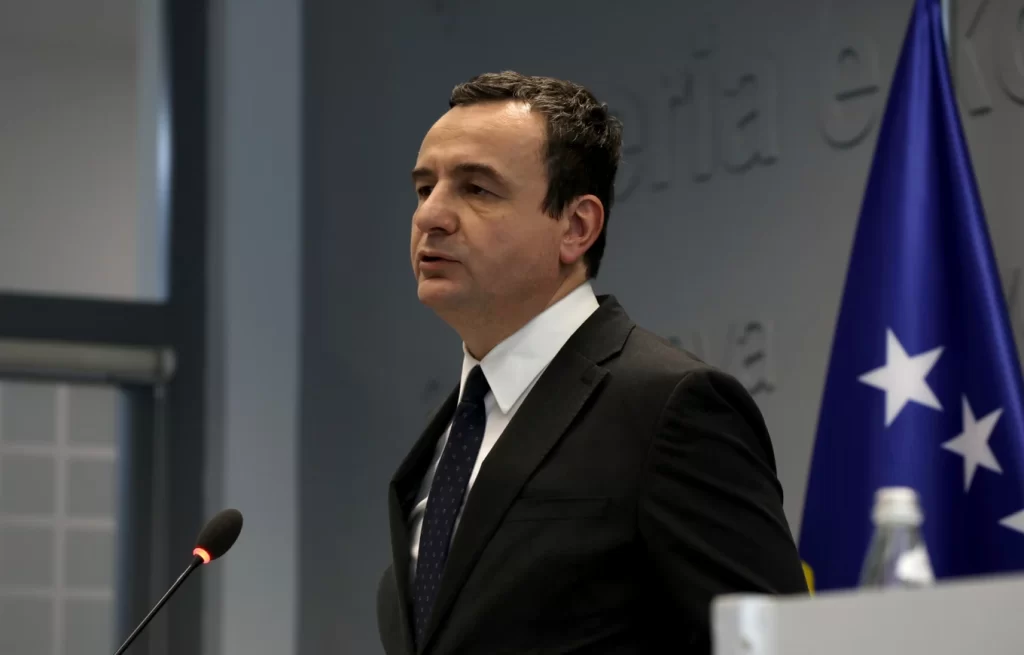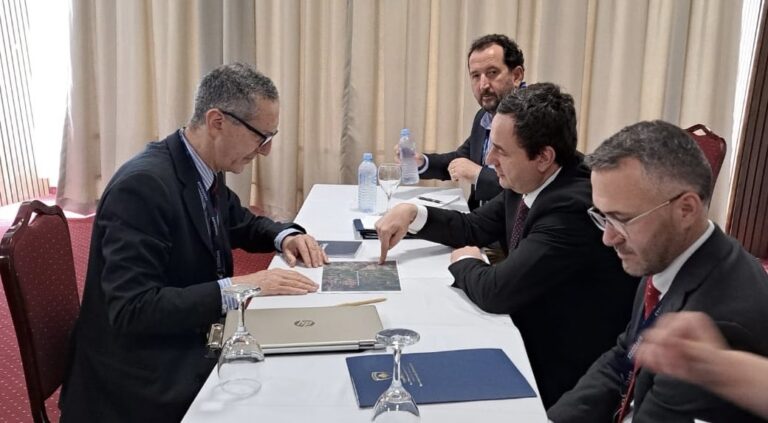Judging by the current political dynamics, Kosovo appears to be entering one of the most complex periods since its declaration of independence. Following the latest parliamentary elections, the process of forming a new government has stalled amid political calculations, incomplete constitutional procedures, and a series of technical and institutional crises that have undermined the state’s functionality. This deadlock stems not only from the lack of inter-party agreements but also from a chain of legal decisions and administrative developments that have called into question the legitimacy of Kosovo’s institutions. Most worryingly, the crisis is unfolding at a critical time, as the country must approve the 2026 budget and safeguard fiscal and political stability on the eve of a new phase in dialogue with Serbia.
The current stalemate was partly shaped by a Constitutional Court ruling aimed at resolving the incomplete formation of the Assembly, which required the election of a deputy speaker from the Serbian community. Although the decision temporarily complicated the parliamentary process, the deeper issue lies in the political inability to move forward once this requirement was addressed.
Despite several attempts and claims that he “had the numbers,” acting Prime Minister Albin Kurti failed to secure the 61 votes needed to form a new government. After weeks of negotiations and shifting alliances, the process collapsed at the decisive moment, revealing not a legal problem, but a political one: the absence of trust, compromise, and credible majorities within the Assembly.
Options for a solution, compromise or political reconfiguration
In this tense climate, political parties face limited options for breaking the deadlock. Under the Constitution, the first right to propose a prime minister belongs to the winning party, in this case, Vetëvendosje (VV). However, if VV could not secure a governing majority, the President may grant the mandate to other parties to attempt forming an alternative coalition.
One widely discussed solution is for Albin Kurti to withdraw his candidacy and nominate Glauk Konjufca, a former speaker of the Assembly and a more moderate figure within VV as prime minister. Such a move could preserve VV’s leadership role while easing tensions with the opposition and international partners. Yet even if implemented, this would only offer temporary relief. The President’s term expires in April 2026, and the Assembly currently lacks the votes needed to elect a successor, risking yet another constitutional deadlock that could again paralyze institutions.
Alternatively, the opposition, including the LDK, PDK, and AAK could attempt to form a consensus government if VV fails to meet the constitutional deadlines. Such a transitional government would likely have a limited mandate: to pass the budget and prepare for new elections. However, this option would require a level of political maturity and compromise that has rarely been demonstrated in Kosovo’s political culture.
History repeats itself
This is not the first time Albin Kurti has faced difficulties forming or sustaining a government. In 2020, his first administration collapsed after just 52 days, following a no-confidence motion that even his coalition partners supported. At that time, disagreements centered on executive authority and the handling of sensitive issues, particularly the pandemic and relations with Serbia.
Five years later, history appears to be repeating itself, not as a clash within the government, but as an outright failure to form one. This recurring cycle of crises underscores how fragile Kosovo’s political system remains: heavily dependent on temporary alliances and personal calculations rather than durable institutional stability.
Crisis of confidence and post-election deadlock
Beyond the constitutional hurdles, the post-election period has been marred by unusual delays and political controversy. The collapse of the Central Election Commission’s servers during the critical vote-counting days raised doubts about the integrity of the process, delayed the release of final results, and deepened public distrust in the electoral system.
These were not mere technical issues, they triggered a domino effect across the political calendar. Without official results, the President could not initiate consultations for the new government mandate, and the winning parties were unable to start formal negotiations. In this vacuum, Kurti repeatedly claimed that he “had the numbers,” yet no parliamentary session has confirmed such a majority. For many analysts, these statements serve more as a communication strategy to preserve the image of legitimacy than as proof of real political stability.
If Kurti fails to demonstrate a majority through a formal vote, constitutional deadlines will expire, leading to the dissolution of the Assembly and the calling of new elections, a costly and risky scenario at a time when Kosovo urgently needs a functioning government to confront both domestic challenges and international pressures.
The budget crisis is the most immediate risk
Among the many dangers posed by the political impasse, the most immediate and tangible is the fiscal crisis. The Law on Public Finance Management requires the draft budget for the coming year to be submitted and approved within specific deadlines. To do so, a functioning government and an active Assembly are essential. Without either, Kosovo risks entering 2026 without an approved budget.
The potential consequences are severe: Suspension of public payments to state employees and municipalities; Disruption of capital projects in infrastructure, education, and healthcare; Halted agricultural and social subsidy programs; And loss of credibility with investors and international partners.
A recent report by the Ministry of Finance warns that if the budget is not approved before year’s end, the state will be forced to operate on “interim budgets,” covering only minimal monthly expenditures. This would paralyze the public sector and threaten government liquidity within months. Politically, such a failure would represent the gravest signal of institutional dysfunction since independence.
A test of political maturity
Kosovo’s current crisis is more than a procedural deadlock, it is a test of institutional resilience and political maturity. Regardless of who becomes the next prime minister, the central question remains: can Kosovo preserve state functionality beyond partisan interests?
If Constitutional Court rulings continue to be weaponized for political gain, if technical failures obstruct electoral integrity, and if party agendas take precedence over state stability, then this crisis will not be the last. Kosovo has reached a stage where political declarations alone can no longer sustain stability, only the genuine capacity to build functional, continuous institutions can. Ultimately, the outcome of this crisis will not be judged by speeches or press conferences, but by the state’s ability to pay salaries, approve a budget, and keep its institutions running.

More on this story: Kosovo is facing a political crisis




